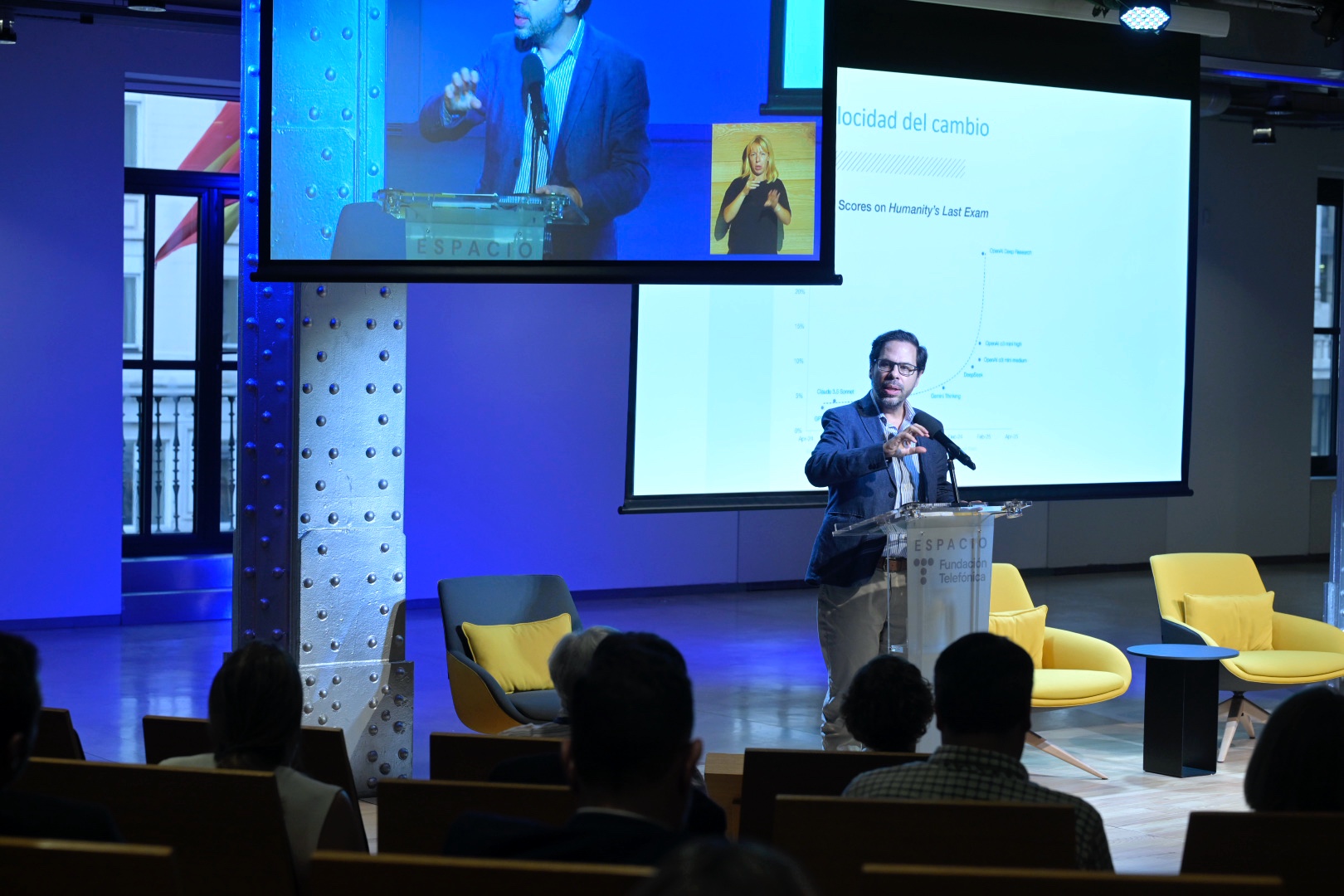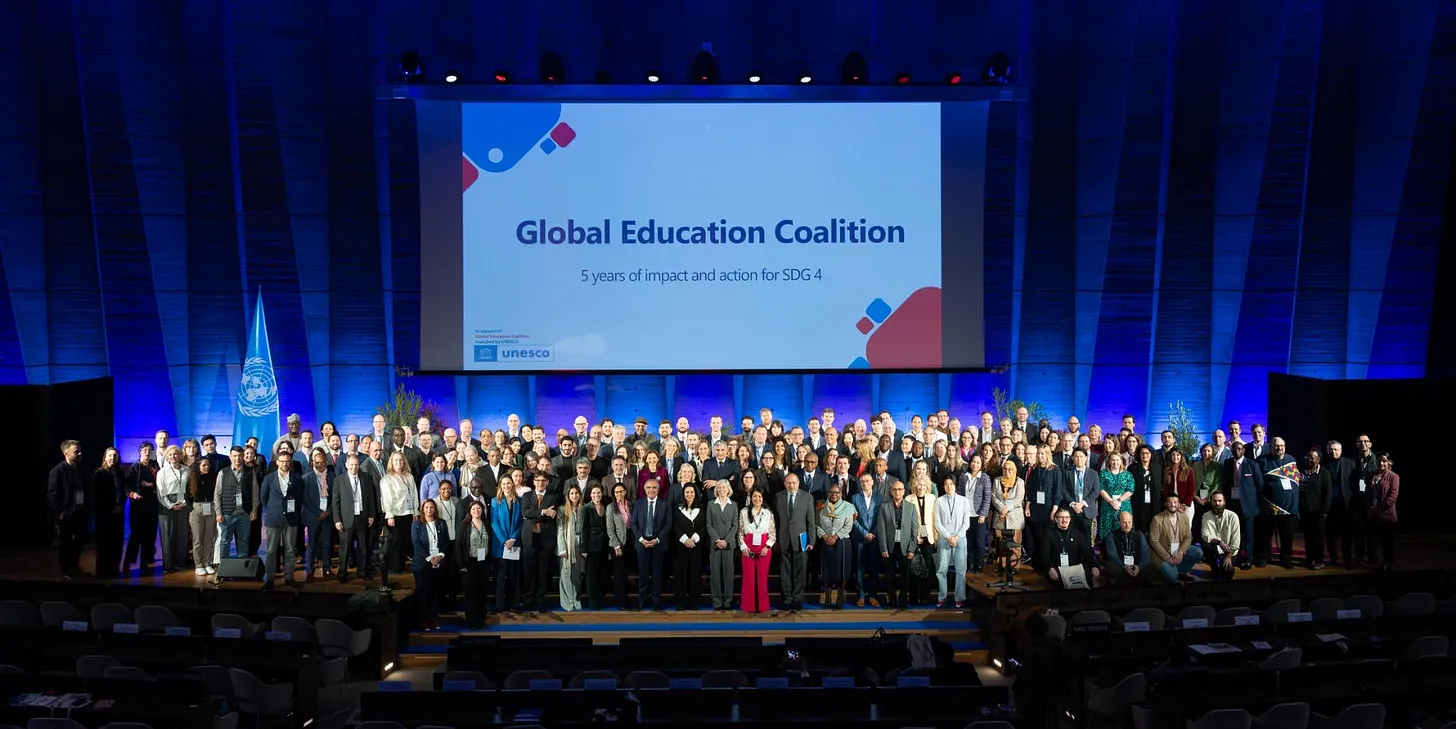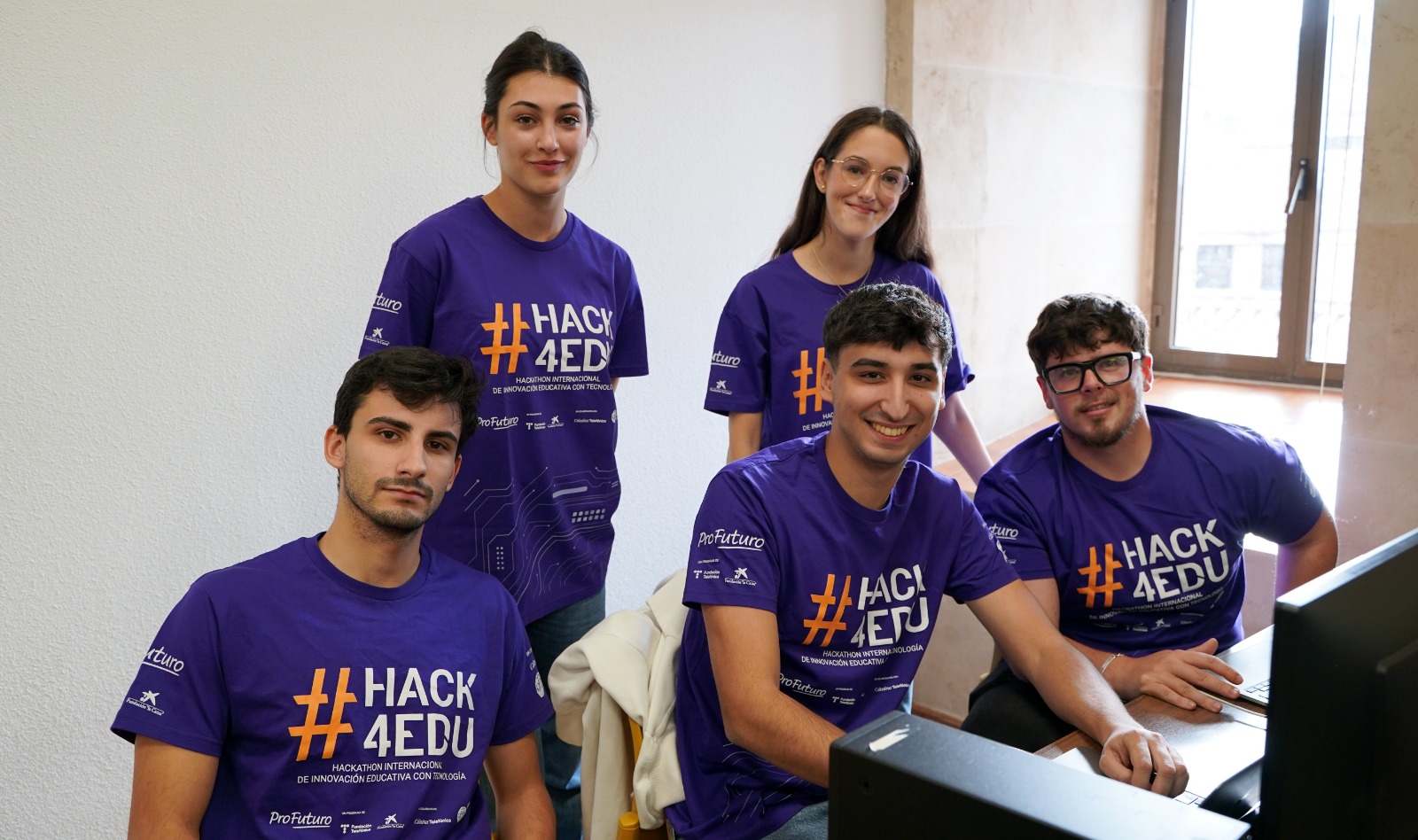Working as a team allows us to look beyond the classroom and understand the challenges of digital inclusion from multiple perspectives. Proof of this can be found in the various studies and reports produced jointly by ProFuturo and other entities, with the common goal of reducing the digital divide and promoting more inclusive education. Throughout 2025, we have produced the following publications:
The arrival of AI in education in Latin America: under construction
Produced in collaboration with the Organisation of Ibero-American States for Education, Science and Culture (OEI), this document, signed by academic Axel Rivas, professor at the University of San Andrés, unpacks the opportunities that AI opens up for education, especially in vulnerable contexts, while warning of the risks of unplanned implementation and the challenges of ensuring inclusive, equitable and truly accessible technology.
The research reveals that the implementation of AI in Latin American education is still in its infancy. The opportunities and challenges outlined in the report can be summarised as follows: the region faces structural challenges such as the digital divide and a lack of teaching skills, while AI is advancing, offering personalised learning that could reduce educational inequalities. However, the risks of dehumanisation, invasion of privacy and the potential widening of existing gaps cannot be ignored and present themselves as the great challenge facing the region.
See the full report here.
Digital education in the Americas: good practices for transformation
In collaboration with the Organisation of American States (OAS), following the positive results of the first mapping exercise, launched in 2022, this second edition set out the following objectives: to highlight initiatives in Latin American and Caribbean countries that promote educational improvements through digital technologies; to analyse common and original aspects of these initiatives in order to build knowledge about their starting points, purposes, characteristics and results; and to systematise information on the initiatives to facilitate their transfer to other contexts and contribute to the promotion of digital education in the region.
Understanding good practices (BBPP) as experiences that drive educational improvements through the use of digital technologies, the resulting report has brought together 17 countries and 179 proposals, compiling some of the most interesting projects that seek to close the digital divide between primary and secondary school students. The highest participation comes from institutions in Mexico (37%), Colombia (22%), Ecuador (10%), Peru (6%) and Argentina (6%).
See the full report here.
Approach to digital skills for teachers in Latin America
Produced in collaboration with the Inter-American Development Bank (IDB), the document is based on teachers’ perceptions of their own abilities to effectively integrate digital technologies into their educational practices. The data collected through the self-assessment based on the Edutec Guide provides a valuable source of guidance for education authorities in designing public policies and training plans that respond to the real needs of teachers.
In a context of accelerated digital transformation and a profound learning crisis, this study presents a regional diagnosis of teachers’ perceptions of their digital skills, based on the self-assessment of more than 28,000 educators from six countries.
See the full report here.






